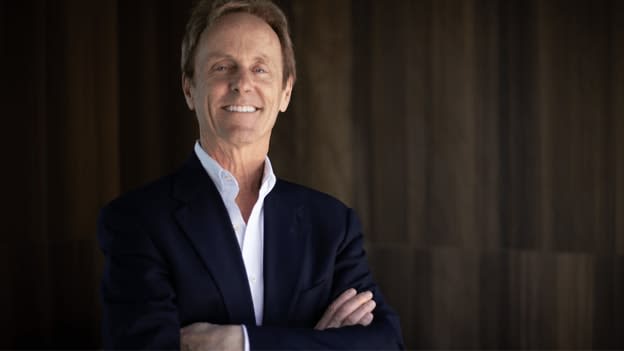‘War for talent’? More like 'war for people', says Josh Bersin

Josh Bersin hates to generalise about any country or culture, but says there’s something about India’s education and spiritual backgrounds that help Indian-origin executives run diverse enterprises, from tech leviathan Google to fashion powerhouse Chanel, as CEOs. In an interview with Shreejay Sinha, Bersin, a global industry analyst who spends his time studying all aspects of HR and business leadership, contends that there’s a ‘war for people’ and not just talent, and that employers need to take care of their people to stay competitive. Also, the pandemic has made CEOs realize that taking care of employees is the most important job for all executives. “This realisation opens the door to more CHROs moving into CEO roles,” he says. Edited excerpts:
I read your predictions for 2022. You argue that it’s going to be hard to hire in the US, and that jobs remaining open this year could shoot up to 20 million. At the same time, employees are looking for predictability as inflation fears erode their sense of security. How do we reconcile this pursuit of predictability with people not willing to take up jobs?
People are changing jobs at unprecedented rates. Almost a third of U.S. workers are predicted to change jobs this year, so it’s clear people feel quite secure looking for new opportunities. I don’t think there will be mass layoffs or any type of significant economic downturns in 2022, so it’s the employers that feel uncertain about meeting hiring challenges. That said, many lower-wage workers are still feeling pressure to increase earnings due to inflation, so I think the big pressure is on hourly workers. U.S. wages are just now starting to rise above inflation rates. Generally speaking, the U.S. has a big economic challenge when it comes to overall pay – far too much income is going to people in the top earnings categories.
Do you see this phenomenon playing out with the same intensity across economies and geographies, or would there be divergences, say between Europe and APAC?
Income inequality, which has been increasing in the U.S., U.K. and many other countries, is more a factor of the country’s political system than geography. China, Japan, the Nordics, Netherlands, and Germany all have strong social policies to protect hourly and low-wage workers during times of inflation. The U.S. and U.K. in particular are handling the issue poorly, so these countries are also seeing an increase in homelessness and other social problems. Income inequality is one reason why there is such a big discussion about the future of capitalism and the increasing role of government. Around the world, governments are playing an ever-increasing role in the economic and private sectors.
We hear there is a ‘war’ for talent, especially in a post-pandemic landscape. But we know there are numerous reputed colleges that produce numerous talented employees. Besides, there are several experienced professionals. Is there really such a thing as a ‘war’ for talent, or is it just hype? Or is it that the HR professionals are not casting their recruitment net wider?
I call it the “war for people”, not just for talent.
Currently, it’s hard to hire for virtually any position, regardless of skills required.
In most countries, colleges and universities continue to graduate well-educated people, but employers now understand that a college degree is not a guarantee of skills, but more an indicator of potential. In other words, college grads are smart, trainable people who could rapidly be developed into jobs.
The real trend in recruiting is expanding the aperture and looking for people with adjacent skills or related skills, understanding the cognitive skills and interests of candidates, and recruiting people who can be developed into a job, rather than simply looking for someone who has done the job before. Therefore, internal mobility is now huge; companies are investing in talent marketplace solutions to reskill and mobilise people internally at a fevered pitch.
One big growth area is psychometric assessments – tools that teach candidates and recruiters what type of work someone would be interested in or qualified for. These tools are helping companies implement what we call human-centred recruiting, which focuses on evaluating a candidate’s unique potential to contribute to many possible roles.
If indeed there’s a war for talent, it becomes a zero-sum game. How can organisations survive and, perhaps, win in this crazy scramble for talent?
The big answer here is to take care of the people you have. Almost every company is frantically looking for ways to better understand what people need to be productive, healthy, happy, and engaged. Investors now look at Glassdoor ratings to see if a company is well respected because employee engagement and employment brand is directly related to a company’s ability to grow. HR and other business leaders are improving the employee experience in every aspect of work.
The world of work first went remote, and then hybrid, as the pandemic waxed and waned. The return to office has been further delayed by the new Omicron variant. Which mode do you advocate – remote, physical, or hybrid – and why?
Hybrid work is clearly the future. We will go back to offices but for many, they will primarily be places for events and meetings, not necessarily places to work all day. Remote and hybrid work is here now, and business leaders are accepting this shift. Technology for remote work just gets better and better, and I fully expect 3D VR/AR Metaverse experiences at work within a year.
In what ways are employee expectations evolving, and what cultural shifts organisations need to make to keep themselves competitive, relevant, and attractive in 2022 and beyond?
Employees want fair pay, career growth, and a sense of belonging and psychological safety. We analysed this in detail in our definitive guide on employee experience published last year.
Our research found that the biggest driver of employee satisfaction is trust, belonging, and growth.
Certainly, companies have to pay well and keep benefits competitive, but this is far less important than being a trusted, healthy, inclusive place to work. Work is a part of life, and these last two years has made people take stock of their work lives and consider other options.
The biggest news of 2021 was perhaps the appointment of Leena Nair as Chanel’s CEO. Do you think HR leaders can make for effective CEOs? Do you see this trend of CHROs becoming CEOs accelerating?
Leena is an exceptional leader and an inspirational example of what a top CHRO can do. The CHRO job itself is very challenging: managing pandemic challenges, hiring, developing employees, creating career paths, and managing complex technology stacks. Her HR experience will be a definite asset in her CEO role. I distinctly remember Jack Welch (GE) constantly saying that his CHRO was his #1 confidant. The pandemic has made CEOs realise that taking care of employees is the most important job for all executives. This realisation opens the door to more CHROs moving into CEO roles.
Indian-origin executives running large MNCs, from Google to Deloitte, and now Chanel, have created quite a buzz globally. What, in your view, makes Indian-origin executives tick?
I meet many executives and amazing consultants who grew up or were educated in India. There is something about India’s education, culture, and religious or spiritual backgrounds that gives these people an amazing constellation of ambition, humility, tenacity, and capacity to learn. So, while I hate to generalise about any country or culture, it’s clearly a winning combination.
Finally, the HR function became front and centre, as the virus swept the world. What are the biggest challenges that HR leaders will likely face, as the pandemic-induced uncertainty persists and employee priorities change radically?
HR has become an essential C-Suite function in almost every company. The days of HR being an administrative function working for the CFO are long over now, so we in HR are now considered essential. In exchange for that privilege, we are required to learn a lot of new things: how to manage a hybrid workforce, how to recruit in a crazy inflated talent market, how to build internal careers and new skills models, and how to pay, reward, and engage people in a new economic environment. HR teams are expected to understand advanced technology, AI, the Metaverse, and just about everything else going on with workforces. So, it’s time for everyone in HR to be investing in themselves.
I encourage all HR teams to build their own internal capability academies to make sure every HR professional feels fully capable to deliver the best possible solutions to their business counterparts.














